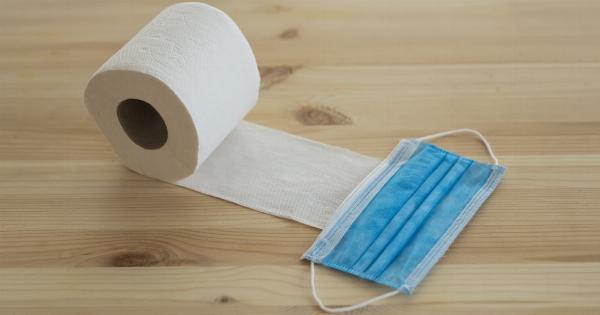Fever is a common symptom that occurs when our body temperature rises above the normal range. It is often a sign that our immune system is actively fighting off an infection or illness.
While fever itself is not usually a cause for concern, there are a few mistakes that people commonly make when dealing with a fever. In this article, we will explore these mistakes and provide some guidance on how to handle fever effectively.
Mistake 1: Ignoring the Fever
One of the biggest mistakes people make is ignoring a fever and not taking any measures to address it. Fever is a natural response of the body to an underlying issue, and it should not be overlooked.
Ignoring a fever can lead to complications and prolong the duration of illness. It is important to pay attention to your body and take appropriate steps to manage the fever.
Mistake 2: Not Monitoring the Temperature
Another mistake is failing to monitor the temperature accurately. Many people rely on ways that give approximate readings, such as touching the forehead or using outdated thermometers.
It is essential to use a reliable thermometer to monitor the body’s temperature during a fever. This allows you to determine if the fever is getting better or worse and helps in tracking the progress of the illness.
Mistake 3: Overdressing or Overbundling
When someone has a fever, it is common to feel chilled and reach for extra layers of clothing or blankets. However, overdressing or overbundling can trap heat and cause the body temperature to rise even further.
It is important to dress comfortably and lightly while ensuring that you are not exposing yourself to cold drafts. This allows the body to regulate its temperature more effectively.
Mistake 4: Not Staying Hydrated
During a fever, the body loses fluids through sweating, which can lead to dehydration. Many people overlook the importance of staying hydrated and don’t drink enough fluids.
It is crucial to increase your fluid intake during a fever to prevent dehydration. Water, herbal teas, and electrolyte solutions can help replenish lost fluids and support the body’s healing process.
Mistake 5: Taking the Wrong Medications
Some individuals make the mistake of self-medicating with over-the-counter medications without understanding their potential side effects or interactions with other medications they may be taking.
It is important to consult a healthcare professional before taking any medications, especially if you have underlying health conditions or are on other medications. They can guide you on the appropriate medication and dosage based on your specific situation.
Mistake 6: Using Cold Water Baths
Another mistake is attempting to bring down the fever by using cold water baths. While it may provide temporary relief, it can be counterproductive. Cold water constricts blood vessels, which can trap heat and prevent heat dissipation from the body.
Instead of cold water baths, opt for lukewarm water to make yourself more comfortable during a fever.
Mistake 7: Avoiding Medical Attention
Sometimes people dismiss a fever as a minor ailment and avoid seeking medical attention, even when it persists or worsens.
Ignoring a persistent or high fever can be dangerous, especially for certain vulnerable populations such as young children or older adults. If your fever persists for more than a few days or is accompanied by severe symptoms, it is important to consult a healthcare professional for an accurate diagnosis and appropriate treatment.
Mistake 8: Not Resting Sufficiently
During a fever, your body is working hard to combat the underlying illness. It is crucial to give your body ample rest to recover effectively. Many individuals make the mistake of not resting enough and continue their daily activities as usual.
Pushing yourself too hard can prolong the duration of the fever and delay your recovery. Listen to your body’s needs and prioritize rest to support the healing process.
Mistake 9: Neglecting Basic Hygiene Measures
When you have a fever, it becomes even more important to practice good hygiene to prevent the spread of infection.
Neglecting basic hygiene measures such as washing hands regularly, covering the mouth when coughing and sneezing, and using disposable tissues can increase the risk of spreading the infection to others. By following simple hygiene practices, you can protect yourself and those around you.
Mistake 10: Stressing and Worrying
Lastly, one common mistake people make when dealing with a fever is stressing and worrying too much. While it’s natural to feel concerned, excessive stress can hamper the body’s ability to heal.
Stress hormones can interfere with the immune response, making it harder for your body to fight off the infection. Try to stay calm and focus on taking proper care of yourself during this time.































